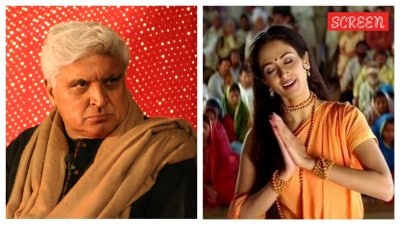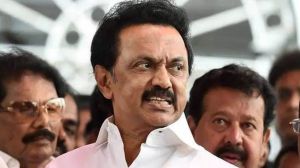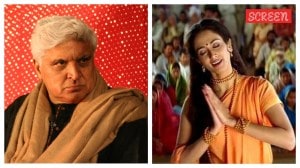Musharraf8217;s gambit
By suspending the constitution and placing the affairs of his nation under the control of the armed forces, Pakistan Army Chief Pervez Mu...

By suspending the constitution and placing the affairs of his nation under the control of the armed forces, Pakistan Army Chief Pervez Musharraf has nudged his people into yet another dark age. He may have stopped short of making a formal proclamation of martial law, but by arming himself with sweeping powers and positioning himself securely outside the purview of the Supreme Court, he has dashed all hopes of fresh elections harboured by Nawaz Sharif8217;s opponents. This is an extremely unfortunate and highly parlous development 8212; for Musharraf8217;s own people as well as for the world beyond. Certainly, over the last decade the promises of accountability and responsiveness associated with democracy have virtually been honoured only in the breach in Pakistan; but this week8217;s coup d8217;etat has conclusively ended the country8217;s hesitant experiment in laying the foundations for civil society. Surely, this must be amply evident to Benazir Bhutto and her ilk who hailed Sharif8217;s overthrow with such myopic glee only to havetheir enthusiastic overtures to the military regime summarily rebuffed.
Apologists for Musharraf8217;s compulsions within Pakistan are wont to point to the imperative to push to the periphery squabbling politicians and entrust the tasks before the nation to a team of technocrats. If only transition into utopia were that simple. If only the simple gesture of declaring an army chief the nation8217;s chief executive were the panacea for all its travails and tribulations. If only they would cast their glance backwards and notch up the painful legacy of military rule. In any event, if anything, the military takeover has only brought Pakistan ever closer to the brink of economic disaster. Foreign exchange transactions have been halted to prevent an inevitable run on the rupee, a downward spiral has begun at the Karachi stock exchange. And unambiguous signals from the International Monetary Fund that it may not deliver the next instalment of its loan to a military dictator spells turbulence for a country in which defenceand debt servicing account for 70 per cent of the GDP and whose foreign exchange reserves of 1.46 billion afford it only a four-month cover. That8217;s just the economy, the coup8217;s fallout on Pakistan8217;s bristling social problems will have to be gauged in the days ahead.
More worrying for India would be the fallout on Pakistan8217;s foreign affairs, especially its attitude to Kashmir. The very fact that the genesis of the coup is traced to Sharif8217;s July retreat from Kargil portends an extended bout of high alert on the border. It also indicates that Prime Minister Atal Behari Vajpayee8217;s intent to revive the Lahore process will have to be shelved for some time. Yet even as vigilance is stepped up, New Delhi has no option but to constructively engage Islamabad in CBMs, no matter how tenuous the confidence they offer would be. The West, ever alert to millennium flashpoints and threats to the democratic process, too will have to walk a tightrope, balancing the impulse to refuse to do business with the generals and theneed to negotiate restraint.
- 01
- 02
- 03
- 04
- 05































